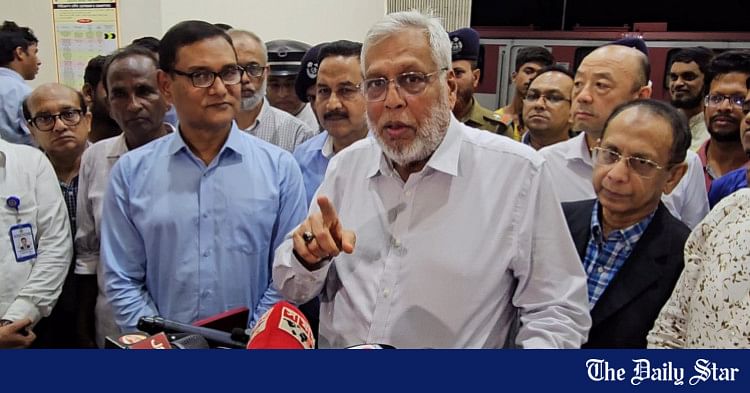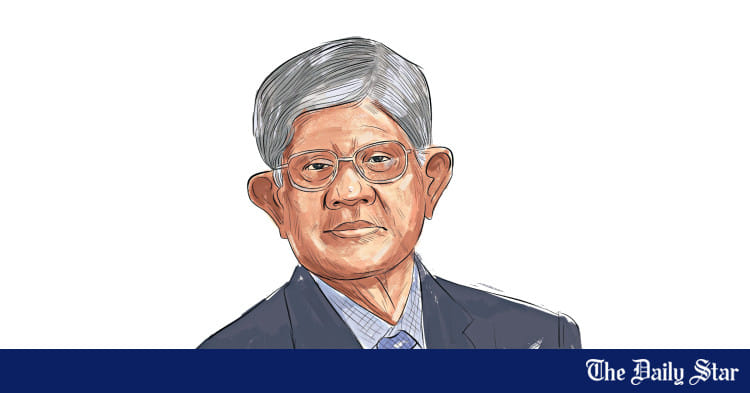Saif
Senior Member
- Joined
- Jan 24, 2024
- Messages
- 17,175
- Likes
- 8,163
- Nation

- Residence

- Axis Group


People's fortune doesn't reflect dev project's expenditures: adviser
Muhammad Fouzul Kabir Khan, adviser to the Ministry of Road Transport and Bridges, today said the expenditures of country's development projects doesn't reflect on people's fortune
People's fortune doesn't reflect dev project's expenditures: adviser

Muhammad Fouzul Kabir Khan, adviser to the Ministry of Road Transport and Bridges, yesterday said people's fortune doesn't reflect expenditures of country's development projects.
While inspecting the Padma Bridge Rail Link Project, Fouzul, who is also an adviser to the Ministry of Railways, made the remarks to reporters at the Mawa Railway Station in Louhajang, Munshiganj, this evening, reports our local correspondent.
He further said, "There is no correlation between development expenditure and the benefits to the people. The reason for the public's frustration is that while it is claimed that the country's GDP is increasing, people are not experiencing the benefits."
He questioned, "How much benefit people will get from the Padma Bridge Rail Link Project? In how many days will the money spent be recovered? I will discuss these with the planning adviser."
"The money for the Padma Bridge project comes from the Chinese Exim Bank, and it must be repaid with interest," he added.
Fouzul Kabir said in future, planning would be done in such a way that development expenditures are more closely aligned with the fortunes of the people.
"The difference between this government and the previous one is that the previous government did not answer questions. Now, we have to address these issues," he said referring to the ministry's secretary.
He continued, "You will see how to maximize income from these projects through their best use. Otherwise, we will not benefit from these white elephant projects."
During this time, senior officials from the ministry were present with the adviser.
Muhammad Fouzul Kabir Khan, adviser to the Ministry of Road Transport and Bridges, yesterday said people's fortune doesn't reflect expenditures of country's development projects.
While inspecting the Padma Bridge Rail Link Project, Fouzul, who is also an adviser to the Ministry of Railways, made the remarks to reporters at the Mawa Railway Station in Louhajang, Munshiganj, this evening, reports our local correspondent.
He further said, "There is no correlation between development expenditure and the benefits to the people. The reason for the public's frustration is that while it is claimed that the country's GDP is increasing, people are not experiencing the benefits."
He questioned, "How much benefit people will get from the Padma Bridge Rail Link Project? In how many days will the money spent be recovered? I will discuss these with the planning adviser."
"The money for the Padma Bridge project comes from the Chinese Exim Bank, and it must be repaid with interest," he added.
Fouzul Kabir said in future, planning would be done in such a way that development expenditures are more closely aligned with the fortunes of the people.
"The difference between this government and the previous one is that the previous government did not answer questions. Now, we have to address these issues," he said referring to the ministry's secretary.
He continued, "You will see how to maximize income from these projects through their best use. Otherwise, we will not benefit from these white elephant projects."
During this time, senior officials from the ministry were present with the adviser.








































